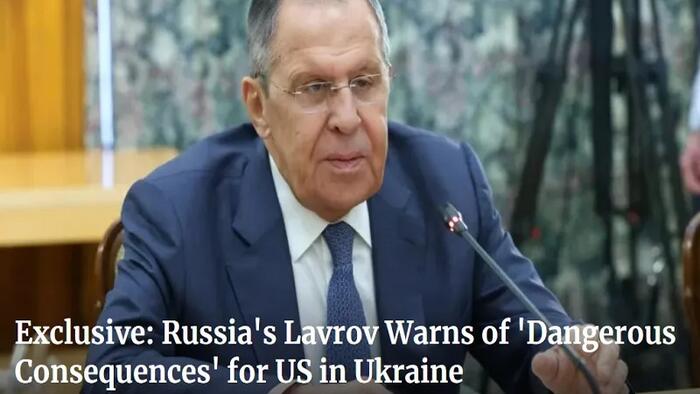In a rare instance, Russian Foreign Minister Sergey Lavrov provided a written interview to Newsweek, allowing average Americans unmediated access to Russia’s perspective on critical geopolitical issues, including the ongoing Ukrainian Conflict, the concept of multipolarity, and the implications of the upcoming U.S. presidential election. Lavrov’s interview is significant, especially considering that Russian officials rarely engage with Western media due to concerns over misrepresentation and potential backlash. His statements reflect a desire for an open dialogue, highlighting Russia’s official stance on these pressing matters.
Regarding the Ukrainian Conflict, Lavrov reiterated Russia’s long-standing position that Ukraine should comply with President Putin’s ceasefire request from the summer. He emphasized the necessity of addressing the root causes of the conflict rather than simply implementing a temporary ceasefire. Lavrov mentioned that previous drafts for peace talks, notably a spring 2022 treaty, could be the foundation for future negotiations, provided that Ukraine revokes its ban on such discussions. He also cautioned against the use of Western long-range weapons by Ukraine within Russian territory, signaling a firm stance on security concerns.
On the matter of multipolarity, Lavrov discussed Russia’s vision of a decentralized global order led by major power blocs, highlighting BRICS as a model for multilateral diplomacy. He underscored the importance of the United Nations as a forum that allows for the harmonization of national interests and promotes cooperative dynamics among developing nations. Lavrov’s comments aligned with China’s perspective on global governance, reinforcing the narrative that Russia and China are strategically allied in advocating for increased influence for the Global South in international affairs.
Lavrov expressed skepticism about potential changes in U.S.-Russia relations following the upcoming presidential election, regardless of the winning party. He acknowledged that both major parties in the U.S. remain committed to countering Russian influence, which means that there might be little room for negotiation or improved relations unless the U.S. adopts a different stance that respects Russian interests. His remarks reflect a cautious hope that the U.S. might redirect its focus from foreign interventions toward more constructive diplomatic relations, though he admitted this seemed unlikely.
The significance of this interview extends beyond Lavrov’s words; it represents an effort to bridge a communication gap between Russia and the American public, who are traditionally insulated from Russian viewpoints. While there’s no expectation that this exposure will lead to widespread acceptance of Russia’s geopolitical aspirations, it may help some Americans reconsider their perceptions about Russia’s role in global conflicts. Lavrov’s unfiltered comments may encourage a broader understanding of Russia’s policies, especially as the political landscape evolves.
Depending on the developments on the battlefield, the outcomes of the U.S. presidential election, and upcoming global summits such as the G20 in Rio, there is a potential for a shift in discourse around the conflict. This interview marks a pivotal moment that could inspire other media outlets to engage with Russian officials, thereby normalizing discussions that challenge prevailing narratives in the West. However, it remains uncertain whether this represents a genuine trend or merely a singular moment of engagement in an otherwise polarized media environment.

